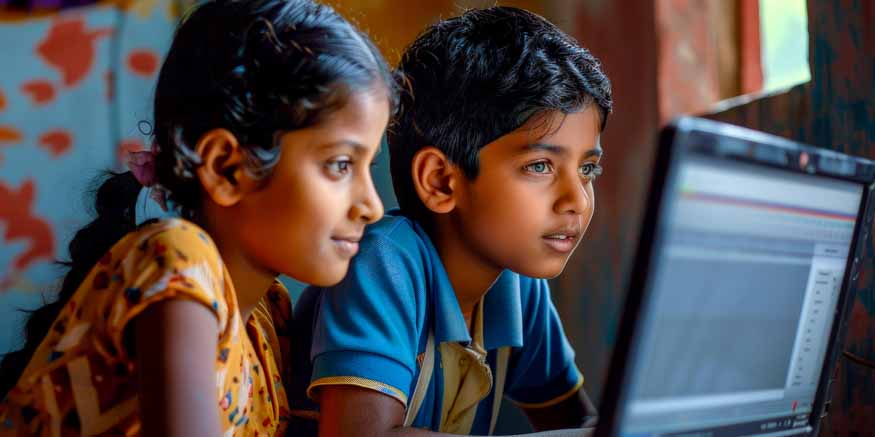While single parenting can be a result of various circumstances, such as divorce, death, choice, or unplanned events, the challenges it presents remain consistently overwhelming, yet under-discussed. This article aims to shed light on the many hurdles faced by those in the single parent family sphere and to address some misconceptions.
Single parent family meaning
The single parent family meaning refers to a family unit where one parent shoulders the majority, if not all, of the child-rearing responsibilities without the consistent in-house presence of a second parent. This structure can arise from various circumstances, such as divorce, death, choice, or unplanned events. Despite challenges, single parents demonstrate resilience, providing love and care within this unique family dynamic.
Also Read: Sensitive Parenting: Meaning, Effects, Pros and Cons
Challenges of single parent family
Here are some challenges faced by a single parent family:
The Financial Burden
Perhaps the most immediate concern for many single parents is finance. The cost of raising a child is significant and, for a single parent, this financial burden is often unshared. While some single parents might receive child maintenance or alimony, many must rely on a single income to cover all household and child-related expenses. This situation might force single parents to take on multiple jobs, leading to further complications in managing home and work balance.
The Emotional Weight
Money isn’t the only concern. The emotional strain on a single parent can be immense. From managing a child’s needs, aspirations, and temperaments to dealing with their own emotions, grief, or the reasons that led them to single parenthood, the emotional tapestry is intricate. The feeling of ‘going it alone’, without a partner to share the highs and lows, can lead to feelings of isolation, stress, and exhaustion.
Moreover, societal pressure and judgement can exacerbate these emotions. The expectation that a two-parent household is the ‘norm’ might lead to a single parent feeling inadequate or less capable. The reality, however, is quite the opposite: single parents often demonstrate resilience, determination, and an unparalleled ability to multitask.
Balancing Act: Time and Responsibilities
For a single parent family, time becomes a premium commodity. Single parents are routinely juggling work, home responsibilities, child-rearing, personal care, and, in many cases, their own education or skill development. The balancing act is relentless. Many single parents grapple with the guilt of not being able to spend as much quality time with their children due to these pressing responsibilities.
On the flip side, children in a one parent family setting might also feel the strain. They might have to grow up faster, take on more household responsibilities, or deal with feelings of absence where the non-residential parent is concerned.
The Support Network
One of the most significant assets a single parent can have is a robust support system. Friends, family, community groups, or single parent support networks can provide both emotional and practical assistance. From babysitting to offering a listening ear after a challenging day, these support systems are invaluable.
Overcoming Stigma and Stereotypes
There’s a societal misconception that single parent families are inherently ‘lacking’ or ‘incomplete’. These stereotypes can be damaging, both for the parent and the children. It’s essential to recognise that family structures come in various forms, each with its strengths and challenges. A one parent family can be just as nurturing, loving, and complete as any other.
Also Read: Parenting stress: 12 evidence-based tips for making life better
Strategies to cope with single parenting
Making the most of being a single parent requires a combination of self-awareness, resilience, and embracing the unique advantages this role brings. Here are some strategies and tips to help single parents not just cope, but thrive:
Embrace Independence: As the primary decision-maker, you have the autonomy to make choices for your family without needing to consult with a partner. This independence can be empowering. Celebrate the freedom it offers and use it to cultivate a home environment that reflects your values and priorities.
Build a Support Network: Surround yourself with friends, family, or fellow single parents who understand your journey. They can provide emotional support, babysitting swaps, or even just a listening ear.
Create Your Traditions: One of the joys of being a single parent is the ability to start your own traditions. Whether it’s a special weekend activity or a unique way to celebrate holidays, these customs will create lasting memories.
Prioritise Self-Care: It’s easy to neglect oneself when you’re busy catering to the needs of your children. Schedule regular ‘me time’ — whether it’s a hobby, exercise, or simply a quiet moment with a book.
Stay Organised: Implement tools and habits that streamline your daily routine, such as weekly meal planning, setting routines, and using calendars or apps for scheduling.
Seek Financial Advice: Managing finances as a single parent can be challenging. Consider seeking advice from financial counsellors or joining budgeting workshops tailored for single parents.
Acknowledge Your Strengths: Being a single parent often requires multitasking and problem-solving on the fly. Celebrate your achievements and the strength you demonstrate daily.
Stay Positive: While it’s natural to have moments of self-doubt or frustration, try to focus on the positive aspects of single parenting. Share these feelings and successes with your children to foster a positive home environment.
Open Communication: Maintain an open dialogue with your children. They might have questions or concerns about the family structure. Answering their queries honestly and reassuringly can build trust.
Join Single Parent Groups: There are numerous online forums, local groups, and organisations dedicated to single parents. These platforms provide opportunities to share experiences, seek advice, and form connections.
Reinvent and Adapt: If something isn’t working, don’t be afraid to change it. Flexibility is a key strength of many single parents. Use it to your advantage to find what’s best for your family.
Also Read: Why Mom Friends Are So Important to Your Sanity
Moreover, it’s crucial to acknowledge that many single parents didn’t ‘choose’ this path, and even if they did, it’s a choice made out of strength, love, and a desire to provide the best for their children. It’s not a commentary on their capability or intent.
The journey of a single parent is laden with challenges. From understanding the depth of the single parent family meaning to navigating the financial, emotional, and societal hurdles, it’s a path that demands recognition and respect. The single parent benefits provided by the government, while helpful, only scratch the surface of the broader support needed.
EuroSchool believes that societal empathy, understanding, and genuine support can make all the difference. After all, the core of any family, regardless of its structure, remains the same: love, care, and a commitment to nurturing the next generation.









